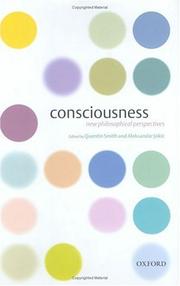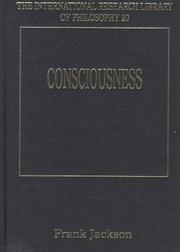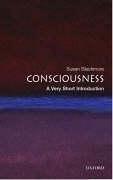| Listing 1 - 10 of 192 | << page >> |
Sort by
|

ISSN: 13740903 ISBN: 280413766X 9782804137663 Year: 2001 Volume: *16 Publisher: Bruxelles: De Boeck,
Abstract | Keywords | Export | Availability | Bookmark
 Loading...
Loading...Choose an application
- Reference Manager
- EndNote
- RefWorks (Direct export to RefWorks)
Depuis plus d'une décennie, le problème classique des bases matérielles de l'esprit connaît un renouveau spectaculaire. La conscience en est le coeur: c'est là où se concentrent les difficultés intellectuelles et les controverses idéologiques. L'auteur tente le pari de l'interdisciplinarité (diverses approches, philosophiques, psychologiques et neurobiologiques). L'état d'avancement suffisant des connaissances scientifiques est l'autre condition à la solution du problème des bases matérielles de la conscience. Aujourd'hui, cette condition est satisfaite par les progrès récents des neurosciences qui permettent de détecter, en ligne, l'activité du cerveau intact, en particulier lors de ses états conscients. A partir des convergences remarquables qui apparaissent ainsi entre subjectif et objectif, entre phénoménologie et neurobiologie, émerge la réalité de la conscience. Ce n'est ni une illusion ni une entité transcendante, mais une forme du fonctionnement cérébral qui constitue la nouvelle frontière, déjà franchie en plusieurs points, des neurosciences.
Bewustzijn --- Cerveau --- Conscience --- Hersenen --- Neuropsychologie --- Neurosciences --- Neurobiology --- Neurologie --- Psychologie --- bewustzijn --- geest --- biologie(biologische aspecten) --- neurowetenschappen --- conscience --- esprit --- biologie(aspects biologiques) --- neurosciences

ISBN: 0199241287 0199241295 9780199241293 Year: 2003 Publisher: Oxford : Clarendon press,
Abstract | Keywords | Export | Availability | Bookmark
 Loading...
Loading...Choose an application
- Reference Manager
- EndNote
- RefWorks (Direct export to RefWorks)
Philosophical anthropology --- Theory of knowledge --- Bewustzijn --- Cogito --- Conscience (Psychophysiologie et philosophie) --- Consciousness --- Conscience --- Consciousness. --- Recherche --- Conscience.
Book
ISBN: 9782352073017 Year: 2014 Publisher: Paris Fluide Glacial
Abstract | Keywords | Export | Availability | Bookmark
 Loading...
Loading...Choose an application
- Reference Manager
- EndNote
- RefWorks (Direct export to RefWorks)
Encre aromatisée à la betterave, couverture en toile de jute tissée dans le Larzac, l'intégrale Autobio est 100% bio ! Avec humour, boboïtude et légèreté, Pedrosa pose une question essentielle : comment avoir un mode de vie responsable, en accord avec ses convictions écologistes ? Ça paraît simple comme ça... Mais c'est un véritable parcours du combattant ! Comment échapper aux OGM, pesticides, agents de synthèse et huile de palme ? Comment cuisiner cet étrange et inconnu cucurbitacé trouvé dans le panier de l'AMAP ? Comment se déplacer sans laisser une empreinte indélébile sur notre planète, ainsi qu'une culpabilité tenace qui traîne dans le placard ?
Graphic novels --- Stripverhalen --- Ecologische voetafdruk --- Bewustzijn --- Romans --- Strips --- Graphic novel --- Stripverhaal
Book
ISBN: 9783319016153 9783319016160 Year: 2013 Publisher: New York : Springer,
Abstract | Keywords | Export | Availability | Bookmark
 Loading...
Loading...Choose an application
- Reference Manager
- EndNote
- RefWorks (Direct export to RefWorks)
Philosophy --- Cognitive psychology --- filosofie --- cognitieve psychologie --- bewustzijn --- existentialisme --- fenomenologie --- Phénoménologie --- Phénoménologie.
Book
ISBN: 9783319510880 Year: 2017 Publisher: Cham : Springer International Publishing : Imprint: Springer,
Abstract | Keywords | Export | Availability | Bookmark
 Loading...
Loading...Choose an application
- Reference Manager
- EndNote
- RefWorks (Direct export to RefWorks)
This Brief presents the argument for the need to re-establish the theoretical focus of general psychology in contemporary psychological research. It begins with a detailed account of the current “crisis” of psychology and our modern disconnect from general psychology. Chapters present the works of Aristotle and A.N. Leontiev, using their ideas to outline a long wanted general psychology. The general psychology delineates the four corner posts of the domain of psychology: Sentience, Intentionality, Mind, and Human Consciousness, and explains why they are all necessary but not the same. Besides a historical discussion, which aims to demonstrate how Marxism got it right, and then not, this Brief presents a new radical theory of human evolution, which credits the Adam-and-Eve story with a vital link hitherto missed by Marxism, Darwinism, and paleoanthropology. In addition, it argues why a new understanding is important in the Anthropocene Age. Catching Up with Aristotle will be of interest to psychologists, undergraduate and graduate students, and researchers. .
Cognitive psychology --- cognitieve psychologie --- bewustzijn --- Aristotle --- Cognitive psychology. --- Cognitive Psychology. --- Psychology, Cognitive --- Cognitive science --- Psychology
Multi
ISBN: 9783319925134 9783030064495 Year: 2018 Publisher: Cham Springer International Publishing
Abstract | Keywords | Export | Availability | Bookmark
 Loading...
Loading...Choose an application
- Reference Manager
- EndNote
- RefWorks (Direct export to RefWorks)
This thought-provoking monograph makes a multidisciplinary case for bilingualism as a possible enhancer of executive function, particularly cognitive control. Its central focus is the cognitive operations of the bilingual brain in processing two languages and whether they afford the brain a greater edge on neuroplasticity—in short, a cognitive advantage. Major issues and controversies in the debate are analyzed from cognitive neuroscience, psycholinguistic, and integrative perspectives, with attention paid to commonly and rarely studied domains at work in bilingual processing. And the author pinpoints future areas for improved research such as recognizing the diversity of bilingualism, not simply in languages spoken but also in social context, as seen among immigrants and refugees. Included in the coverage: The evolution of bilingualism. What goes on in a bilingual mind? The core cognitive mechanisms. Cognitive advantage of bilingualism and its criticisms. Neuroscience of bilingualism. Bilingualism, context, and control. Attention, vision, and control in bilinguals. With its cogent takes on ongoing questions and emerging issues, Bilingualism and Cognitive Control is of immediate interest to bilingual researchers and practitioners interested in understanding the behavioral aspects and neurobiology of bilingualism and the dynamic character of the bilingual/multilingual/second language learner’s mind, as well as the growing number of advanced undergraduate and graduate students interested in the psychology/psycholinguistics of bilingualism, bilingual cognitive psychology, cognitive science, and cognitive neuroscience. .
Cognitive psychology --- Linguistics --- Language and literature --- cognitieve psychologie --- bewustzijn --- linguïstiek --- meertaligheid
Book
ISBN: 9780195388275 0195388275 9780195388282 0195388283 1282270656 9786612270659 019973674X 0199943931 0199889112 Year: 2009 Publisher: New York : Oxford University Press,
Abstract | Keywords | Export | Availability | Bookmark
 Loading...
Loading...Choose an application
- Reference Manager
- EndNote
- RefWorks (Direct export to RefWorks)
All people derive particular identities from their roles in society, the groups they belong to, and their personal characteristics. Introduced almost thirty years ago, identity theory is a social psychological theory in the field of sociology that attempts to understand identities, their sources in interaction and society, their processes of operation, and their consequences for interaction and society. The theory brings together in a single framework the central roles of both meaning and resources in human interaction and purpose. This book describes identity theory, its origins, the research
Identity (Psychology) --- Identité (Psychologie) --- 316.37 --- 316.63 --- 316.63 Sociaal bewustzijn. Zelfconcept --- Sociaal bewustzijn. Zelfconcept --- 316.37 Identiteit. Individu en maatschappij. Persoonlijkheid --- Identiteit. Individu en maatschappij. Persoonlijkheid --- Identity (Psychology). --- Identité (Psychologie) --- Personal identity --- Personality --- Self --- Ego (Psychology) --- Individuality --- Psychology.

ISBN: 1855219522 Year: 1998 Publisher: Aldershot ; Brookfield, VT : Ashgate,
Abstract | Keywords | Export | Availability | Bookmark
 Loading...
Loading...Choose an application
- Reference Manager
- EndNote
- RefWorks (Direct export to RefWorks)
Book
ISBN: 063118564X 0631185631 Year: 1993 Volume: 2 Publisher: Oxford ; Cambridge Blackwell
Abstract | Keywords | Export | Availability | Bookmark
 Loading...
Loading...Choose an application
- Reference Manager
- EndNote
- RefWorks (Direct export to RefWorks)
Bewustzijn --- Cogito --- Conscience (Psychophysiologie et philosophie) --- Consciousness --- Conscience --- Apperception --- Mind and body --- Perception --- Philosophy --- Psychology --- Spirit --- Self

ISBN: 0192805851 9780192805850 Year: 2005 Publisher: Oxford, UK: Oxford university press,
Abstract | Keywords | Export | Availability | Bookmark
 Loading...
Loading...Choose an application
- Reference Manager
- EndNote
- RefWorks (Direct export to RefWorks)
"The last great mystery for science," consciousness has become a controversial topic. Consciousness: A Very Short Introduction challenges readers to reconsider key concepts such as personality, free will, and the soul. How can a physical brain create our experience of the world? What creates our identity? Do we really have free will? Could consciousness itself be an illusion? Exciting new developments in brain science are opening up these debates, and the field has now expanded to include biologists, neuroscientists, psychologists, and philosophers. This book clarifies the potentially confusing arguments and clearly describes the major theories, with illustrations and lively cartoons to help explain the experiments. Topics include vision and attention, theories of self, experiments on action and awareness, altered states of consciousness, and the effects of brain damage and drugs. This lively, engaging, and authoritative book provides a clear overview of the subject that combines the perspectives of philosophy, psychology, and neuroscience--and serves as a much-needed launch pad for further exploration of this complicated and unsolved issue.
Consciousness --- Cognitive psychology --- #KVHB:Bewustzijn --- #KVHB:Neuropsychologie --- 153 --- Apperception --- Mind and body --- Perception --- Philosophy --- Psychology --- Spirit --- Self --- Conscience. --- Consciousness.
| Listing 1 - 10 of 192 | << page >> |
Sort by
|

 Search
Search Feedback
Feedback About UniCat
About UniCat  Help
Help News
News